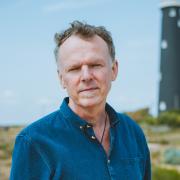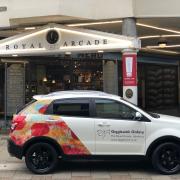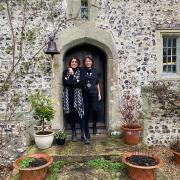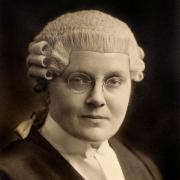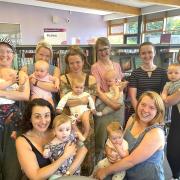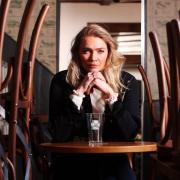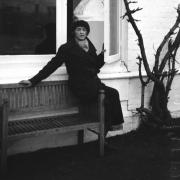How former geography teacher Oliver Sterno is dedicating his retirement to making his adopted hometown a greener place | Words: Duncan Hall - Photos: Jim Holden
“I started teaching in 1969. I’ve talked about sustainability, I’ve talked about global warming, I’ve talked about resource management all my career. Glaciers melting, rising sea levels, fires in Australia, these things I taught in the 1970s, 1980s, 1990s through to this century.
“I’m disappointed we’ve reached this stage which we could have avoided decades ago, and we’re only now realising these consequences.”
So says retired geography teacher Oliver Sterno in the short film Rubbish is Rubbish, which documents the work he has been doing with Eastbourne primary schools to change attitudes to single-use plastic and the environment in his hometown.
Oliver’s own Damascene moment came when he watched David Attenborough’s Blue Planet II. He started cleaning the beach around Holywell every Friday afternoon.

It was there someone suggested he set up a group to establish Eastbourne as a plastic-free community. In December Plastic Free Eastbourne achieved that objective – meeting five targets set by Surfers Against Sewage a year ahead of schedule.
The journey to reach that plastic-free community status involved a series of beach and park cleans – one of which in May 2019 attracted more than 700 volunteers – and collaborations with the borough council, 38 town businesses and 15 primary schools.
Along the way 200 sq km of coastline between Hastings and Beachy Head was designated as the Beachy Head East Conservation Zone by the Marine Conservation Society.
Plastic Free Eastbourne collaborated with the council’s Neighbourhood First on environmental projects and Refill Eastbourne to create a network of refill stations between Birling Gap and Sovereign Harbour to discourage people from buying single-use water bottles.

“The large majority of people want the environment to be better,” says Oliver, ahead of July’s first post-lockdown clean of Eastbourne beach, which saw 93 socially distanced groups of six clear rubbish from the seafront over the course of a weekend. “It has been very gratifying to see that there is a lot of support.”
His appearances at school assemblies, giving presentations to young eco-warriors and green teams, paid dividends when Plastic Free Eastbourne ran a competition in 15 primary schools to create anti-littering posters, which have now been placed in 38 locations across the town’s parks.
But there is still more to come – not least the aim to make Eastbourne carbon-neutral by 2030. Despite the media attention given to the excess littering once lockdown began to lift, Oliver believes the three-month national shutdown did have a positive effect.
“It makes people rethink how they live,” he says. “We have to deal with a major global problem which is this virus, and this even more significant global problem which is global heating. Lockdown has given people a flavour of how environmental improvements can be reached by changing our style of living.”

Those changes can be on a basic level – from cutting out plastic drink boxes and cling film in a child’s lunchbox in favour of refillable bottles and reusable wraps, to eliminating bin liners by only putting dry items in the bin and using recyclable yoghurt pots or strong bags for wet items.
“Once you’ve done something like that you get into a routine and don’t even notice it,” says Oliver. “I’ve not used cling film or a plastic bin liner for a good year now.”
Having received financial support from Co-op, Waitrose, TK Maxx and Sussex Community Fund among others, Plastic Free Eastbourne is working with groups like Vegware, who have created a compostable alternative to plastic wrapping, as well as commercial recycling group Paper Round.
“It is a full-time job, with evening work,” says the 74-year-old, who moved to Eastbourne with wife Véronique nine years ago.

“We have got to get people to think – it starts off being uncomfortable, but as it assimilates its way into your way of life it becomes more comfortable.”
He gives an example of the humble balloon – whose latex and nylon string can hang around long after the celebration it was bought for.
“If you look at the VE celebrations in 1945 – one of the biggest celebrations of the 20th century – there wasn’t one balloon on view in any of the footage,” he says.
“So why should we think we need to have balloons to have fun now?”
Find out more about Plastic-Free Eastbourne at plastic-free-eastbourne.mn.co/feed






